
- Home
- Travel Packages
- Top Destination
-
Travel Attraction
By Category
Top Attraction

- Travel Agents
- Car Rentals
- Hotels
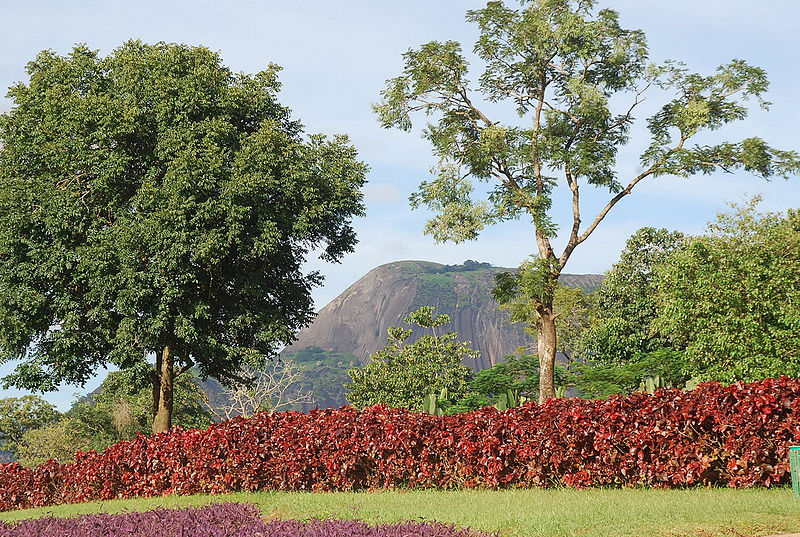
About Millennium Park (Abuja) Millennium Park is a prominent landmark in Abuja, Nigeria's capital city. It is the largest public park in Abuja and is known for its lush greenery, serene atmosphere, and diverse wildlife. The park is a popular destination for both locals and tourists seeking a peaceful retreat from the hustle and bustle of city life. Location and Geographical Overview Millennium Park is located in Maitama, one of the upscale districts in Abuja. The park spans over 32 hectares of land and is situated near the Presidential Villa and the National Mosque. Its strategic location makes it easily accessible to visitors from different parts of the city. Open and Closing Time The park is open to the public from 7:00 AM to 7:00 PM every day, allowing visitors to enjoy the beauty of the park throughout the day. It is recommended to visit the park during daylight hours to fully appreciate its natural beauty. Entry Fee Entry to Millennium Park is free for all visitors, making it an affordable and accessible destination for families, groups, and individuals looking to enjoy nature in the heart of Abuja. Species-Flora/Fauna Availability Millennium Park is home to a wide variety of plant and animal species, including indigenous trees, flowers, and birds. Visitors can explore the park's walking trails and observe the diverse flora and fauna that call the park home. Activities Performed Visitors to Millennium Park can engage in a range of activities, including picnicking, jogging, cycling, bird watching, and photography. The park's serene environment provides the perfect backdrop for relaxation and outdoor recreation. Jeep Safari Charges Millennium Park offers jeep safari tours for visitors looking to explore the park in a unique and exciting way. The safari charges vary depending on the duration of the tour and the number of participants. It is recommended to inquire about the safari charges at the park entrance. Age Criterion for Male, Female, Children, and Entry Fee There is no specific age criterion for male, female, or children visiting Millennium Park. Visitors of all ages are welcome to explore the park and enjoy its natural beauty. As mentioned earlier, entry to the park is free for all visitors, regardless of age or gender. Senior Citizen Facilities Millennium Park provides facilities for senior citizens, including benches, walking paths, and shaded areas where they can relax and enjoy the park's peaceful ambiance. The park's accessibility and amenities make it an ideal destination for seniors looking to spend time outdoors. Best Time to Visit The best time to visit Millennium Park is during the early morning or late afternoon when the weather is cooler, and the park is less crowded. This allows visitors to fully immerse themselves in the park's natural beauty and enjoy a peaceful experience away from the city's hustle and bustle. Nearby Places to Visit Millennium Park is situated near several other attractions in Abuja, including the National Mosque, the Aso Rock, and the Abuja Arts and Crafts Village. Visitors can explore these nearby places before or after visiting the park to make the most of their trip to Abuja. Vehicle Parking Facility Millennium Park offers ample parking space for visitors arriving by car. The park's designated parking areas ensure that visitors can safely and conveniently park their vehicles before exploring the park on foot. It is recommended to follow the park's parking guidelines to avoid any inconvenience. Rules and Regulations Visitors to Millennium Park are required to adhere to certain rules and regulations to ensure a safe and enjoyable experience for all. Some of the common rules include refraining from littering, respecting the park's wildlife, and avoiding any activities that may harm the park's ecosystem. It is advised to follow the park's guidelines and regulations during your visit. How to Reach and Other Related Information Millennium Park in Abuja is easily accessible by car, taxi, or public transportation. Visitors can use GPS navigation or ask locals for directions to reach the park. It is recommended to plan your visit in advance and check the park's operating hours and any special events or activities taking place during your visit. Additionally, visitors can inquire about guided tours, facilities, and services available at the park to enhance their experience. Overall, Millennium Park in Abuja offers a tranquil escape for nature lovers, outdoor enthusiasts, and families looking to enjoy a peaceful retreat in the heart of Nigeria's capital city. With its lush greenery, diverse wildlife, and recreational activities, the park provides a unique opportunity to connect with nature and experience the beauty of Abuja's natural landscape. Whether you're looking to relax, explore, or simply enjoy a leisurely stroll, Millennium Park is a must-visit destination for anyone seeking to experience the best of Abuja's outdoor offerings.
Explore More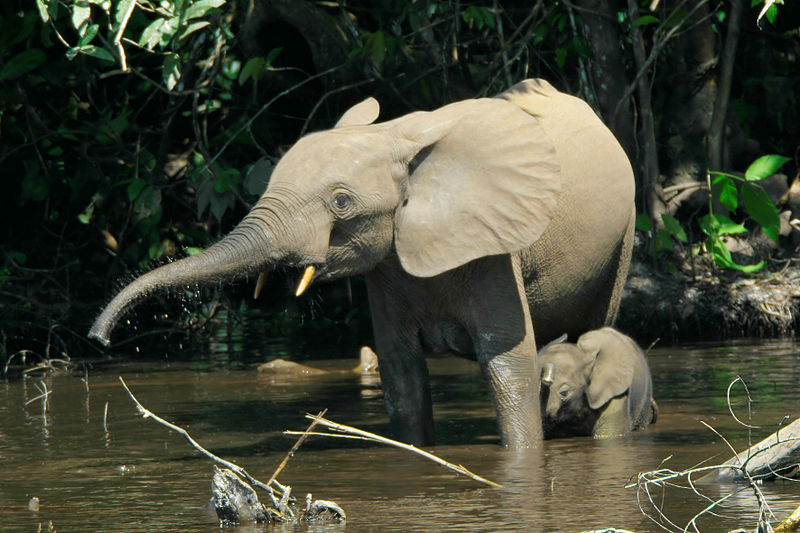
About Cross River National Park The Cross River National Park is a national park located in Cross River State, Nigeria. It is one of the most biodiverse areas in Nigeria, with rich flora and fauna making it a popular destination for nature lovers and wildlife enthusiasts. Location and Geographical Overview The Cross River National Park covers an area of approximately 4,000 square kilometers and is divided into two sections - the Oban Hills and Okwangwo divisions. The park is located in the southeastern part of Nigeria, near the border with Cameroon. Open and Closing Time The Cross River National Park is open to visitors from 8:00 AM to 6:00 PM daily. It is recommended to visit during daylight hours for safety reasons. Entry Fee There is an entry fee for visitors to the Cross River National Park, with different rates for adults, children, and senior citizens. The fees help support park maintenance and conservation efforts. Species-Flora/Fauna Availability The Cross River National Park is home to a wide variety of flora and fauna, including endangered species such as the Cross River gorilla, chimpanzees, and forest elephants. The park is also known for its diverse bird species, making it a paradise for birdwatchers. Activities Performed Visitors to the Cross River National Park can engage in a range of activities, including guided nature walks, birdwatching, camping, and hiking. The park also offers jeep safaris for those looking to explore the park's remote areas. Jeep Safari Charges There are additional charges for jeep safaris in the Cross River National Park. These guided tours provide visitors with a unique opportunity to see wildlife up close and explore the park's rugged terrain. Age Criterion and Entry Fee The park has specific entry fees based on age categories. Adults, children, and senior citizens each have different rates for admission. Children under a certain age may enter for free, while seniors may receive discounted rates. Senior Citizen Facilities The Cross River National Park provides facilities and services to accommodate senior citizens, such as rest areas, benches, and accessible paths for easy navigation. It is recommended that seniors inquire about specific accommodations upon arrival. Best Time to Visit The best time to visit the Cross River National Park is during the dry season, which typically falls between November and March. The weather is more favorable during this time, and wildlife sightings are more common as animals gather around water sources. Nearby Places to Visit There are several nearby attractions to explore while visiting the Cross River National Park, including the Afi Mountain Wildlife Sanctuary, the Drill Ranch, and the Kwa Falls. These sites offer additional opportunities to experience the natural beauty and wildlife of the region. Vehicle Parking Facility The Cross River National Park offers a designated parking area for visitors who arrive by vehicle. It is important to follow park regulations and guidelines when parking to ensure the safety and security of all guests. Rules and Regulations Visitors to the Cross River National Park are expected to adhere to certain rules and regulations to protect the park's ecosystem and wildlife. This includes following designated trails, refraining from littering, and respecting the natural environment. How to Reach and Other Related Information The Cross River National Park can be reached by road from Calabar, the capital of Cross River State. Visitors can hire a car or take a public bus to the park entrance. It is advisable to plan ahead and obtain any necessary permits or reservations before visiting. Overall, the Cross River National Park offers a unique and unforgettable experience for those seeking to immerse themselves in the beauty of Nigeria's natural landscape. With its diverse wildlife, stunning scenery, and range of activities, the park is a must-visit destination for nature enthusiasts and adventure seekers alike.
Explore More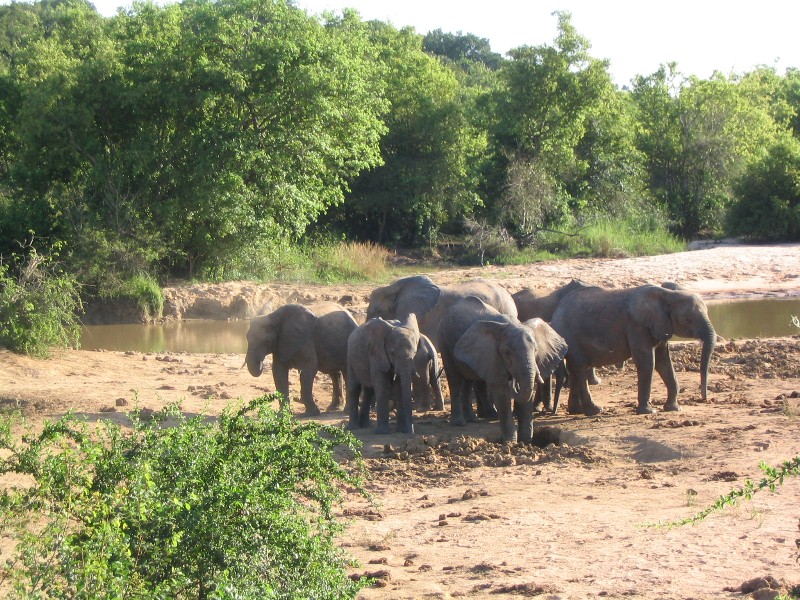
About Yankari National Park Yankari National Park is a large wildlife park located in Bauchi State, Nigeria. It covers an area of about 2,244 square kilometers and is home to a variety of wildlife species, making it a popular destination for nature lovers and wildlife enthusiasts. Location and Geographical Overview The park is situated in the southern part of Bauchi State, in northeastern Nigeria. It is about 225 kilometers from the state capital, Bauchi City. Yankari National Park is known for its rich biodiversity, including several natural warm springs which attract both wildlife and tourists. Open and Closing Time The park is open throughout the year, from 6:00 am to 6:00 pm. Visitors are advised to arrive early to make the most of their time in the park and to avoid missing out on any activities. Entry Fee The entry fee for Yankari National Park is affordable, making it accessible to a wide range of visitors. The exact fee may vary depending on the age and nationality of the visitor, with discounts available for children and senior citizens. Species-Flora/Fauna Availability Yankari National Park is home to a diverse range of flora and fauna, including elephants, baboons, hippos, waterbucks, and various bird species. The park's rich ecosystem provides a habitat for a variety of wildlife, making it a popular destination for wildlife enthusiasts. Activities Performed Visitors to Yankari National Park can enjoy a range of activities, including wildlife viewing, bird watching, hiking, and swimming in the park's natural warm springs. Guided tours are available for those looking to learn more about the park's wildlife and ecosystem. Jeep Safari Charges Jeep safari tours are available for visitors who want to explore the park in a more adventurous way. The charges for jeep safari tours may vary depending on the duration and route of the tour, with experienced guides accompanying visitors to ensure their safety. Age Criterion and Entry Fee There may be age criteria for entry into Yankari National Park, with different entry fees for male, female, and children visitors. Senior citizens may be eligible for discounts on entry fees, making it an affordable destination for visitors of all ages. Senior Citizen Facilities Yankari National Park may offer special facilities for senior citizens, such as discounted entry fees, wheelchair accessibility, and designated rest areas. Visitors are advised to inquire about senior citizen facilities when planning their visit to the park. Best Time to Visit The best time to visit Yankari National Park is during the dry season, from November to April, when the weather is pleasant and wildlife sightings are more likely. The park may be busier during peak tourist seasons, so visitors are advised to plan their trip accordingly. Nearby Places to Visit There are several other attractions near Yankari National Park that visitors can explore, including Tunga Dutse, Wikki Warm Spring, Marshall Caves, and the ancient city of Bauchi. These nearby places offer additional opportunities for sightseeing and cultural experiences. Vehicle Parking Facility Yankari National Park may provide a vehicle parking facility for visitors who are driving to the park. Visitors are advised to follow any parking regulations and guidelines to ensure the safety of their vehicles while exploring the park. Rules and Regulations When visiting Yankari National Park, visitors are expected to follow certain rules and regulations to protect the park's wildlife and ecosystem. Some common rules may include avoiding littering, refraining from feeding the animals, and respecting the natural environment. How to Reach and Other Related Information Yankari National Park can be reached by road from major cities in Nigeria, with public transportation options available for those traveling without a vehicle. Visitors can also book guided tours or transportation services to make their journey to the park more convenient.
Explore More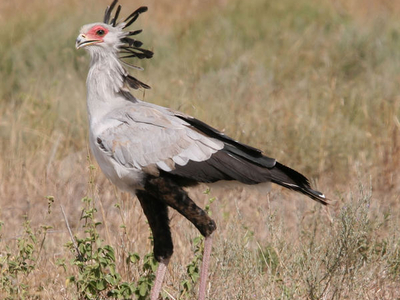
About Kamuku National Park Kamuku National Park is a protected area located in Kaduna State, Nigeria. It covers an area of approximately 1125 square kilometers and is known for its diverse ecosystem, including savannah woodlands, grasslands, and seasonal rivers. Location and Geographical Overview The park is situated in the northwestern part of Nigeria, near the town of Birnin Gwari. It lies within the Kamuku Plateau and is bordered by the towns of Pambegua, Kuyanbana, and Maigana. Open and Closing Time The park is open to visitors from 8:00 AM to 6:00 PM daily. Entry Fee There is a nominal entry fee for visitors to access the park. The fee varies for adults, children, and senior citizens. Species-Flora/Fauna Availability Kamuku National Park is home to a wide range of flora and fauna species. Visitors can spot animals such as elephants, lions, leopards, and various species of birds. The park also boasts a variety of plant species, including acacia trees, baobabs, and grasses. Activities Performed Visitors to Kamuku National Park can enjoy activities such as jeep safaris, nature walks, birdwatching, and camping. There are designated picnic areas within the park where visitors can relax and enjoy the natural surroundings. Jeep Safari Charges Jeep safari charges are additional to the entry fee and vary depending on the duration and route chosen by visitors. Age Criterion and Entry Fee There are different entry fees for male, female, and children. Senior citizens may be eligible for discounts or special rates. Senior Citizen Facilities Kamuku National Park offers special facilities for senior citizens, including designated seating areas, accessible pathways, and restroom facilities. Best Time to Visit The best time to visit Kamuku National Park is during the dry season, which typically runs from November to April. The weather is cooler during this time, and wildlife is easier to spot near water sources. Nearby Places to Visit There are several nearby attractions that visitors to Kamuku National Park can explore, including Kajuru Castle, Matsirga Waterfall, and the Kufena Mountain. Vehicle Parking Facility Kamuku National Park offers designated parking areas for visitors who arrive by car. Parking attendants are available to assist visitors with parking and directions. Rules and Regulations Visitors to Kamuku National Park are required to follow a set of rules and regulations to ensure the safety of themselves and the wildlife. Some of the regulations include not feeding the animals, staying on designated pathways, and not littering. How to Reach and Other Related Information Kamuku National Park can be reached by road from major cities in Nigeria, such as Kaduna and Abuja. Visitors can also book guided tours or transportation through local tour operators. It is recommended to check with the park authorities for any updates on road conditions or park closures before planning a visit.
Explore More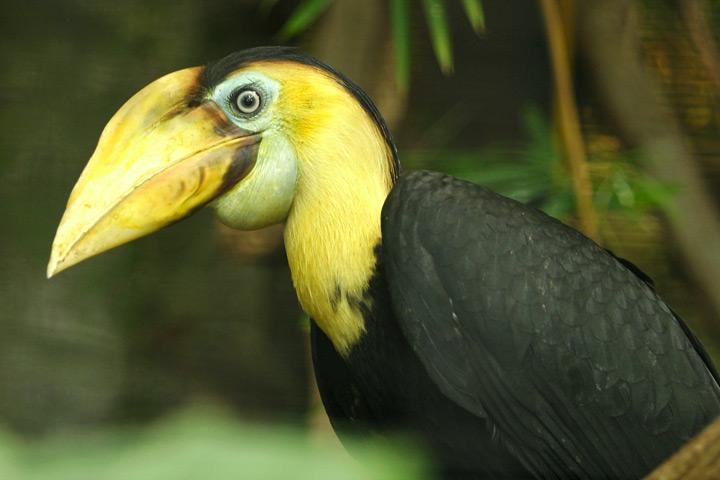
About Okomu National Park Okomu National Park is a protected area of tropical rainforest located in the Ovia South-West Local Government Area of Edo State, Nigeria. It covers an area of about 200 square kilometers and is home to a diverse range of flora and fauna. Location and Geographical Overview The park is situated in the heart of the lowland rainforest belt in southern Nigeria. It is approximately 45 kilometers west of Benin City, the capital of Edo State. The park is bordered to the south by the village of Okomu and to the north by the village of Ehor. Open and Closing Time Okomu National Park is open to visitors from 8:00 am to 6:00 pm daily. Entry Fee There is an entry fee of N1000 for adults and N500 for children under the age of 12. Species-Flora/Fauna Availability The park is home to a wide variety of plant and animal species. Some of the flora found in the park include mahogany, rubber trees, and various species of orchids. The fauna in the park includes elephants, buffaloes, chimpanzees, and a large number of bird species. Activities Performed Visitors to Okomu National Park can enjoy a range of activities, including guided nature walks, birdwatching, and Jeep safaris. Jeep Safari Charges The charges for a Jeep safari in the park are N5000 per person. Age Criterion for Male, Female, Children and their Entry Fee Children under 12 years old can enter the park for a fee of N500. There is no specific age criterion for males and females. Senior Citizen Facilities Senior citizens are entitled to a 50% discount on the entry fee to Okomu National Park. Best Time to Visit The best time to visit Okomu National Park is during the dry season, which runs from November to March. During this time, the weather is more favorable for outdoor activities and wildlife viewing. Nearby Places to Visit Some nearby attractions to Okomu National Park include the National Museum of Benin City, the Benin City National Park, and the Oba's Palace. Vehicle Parking Facility There is a designated parking area for visitors to park their vehicles at Okomu National Park. Rules and Regulations Visitors to the park are required to follow certain rules and regulations, such as staying on designated trails, refraining from feeding the wildlife, and not littering in the park. How to Reach and Other Related Information Okomu National Park can be reached by road from Benin City. The park is approximately a 1.5-hour drive from the city center. Visitors can hire a car or take a taxi to reach the park entrance.
Explore More